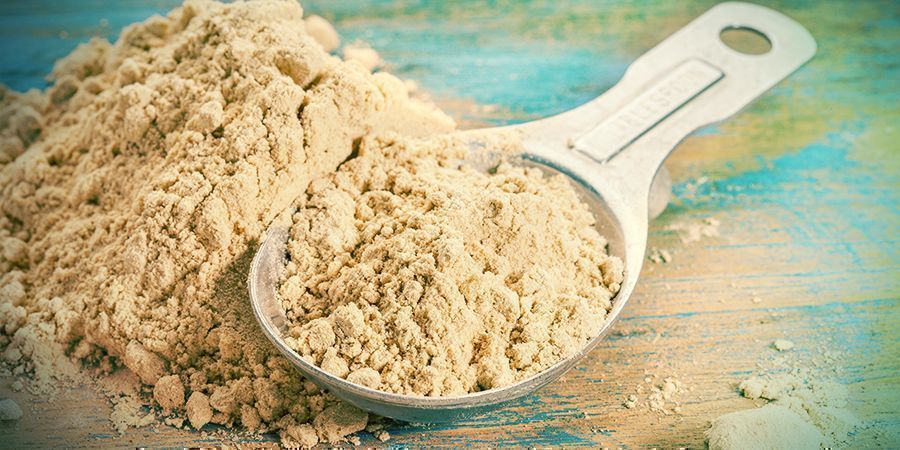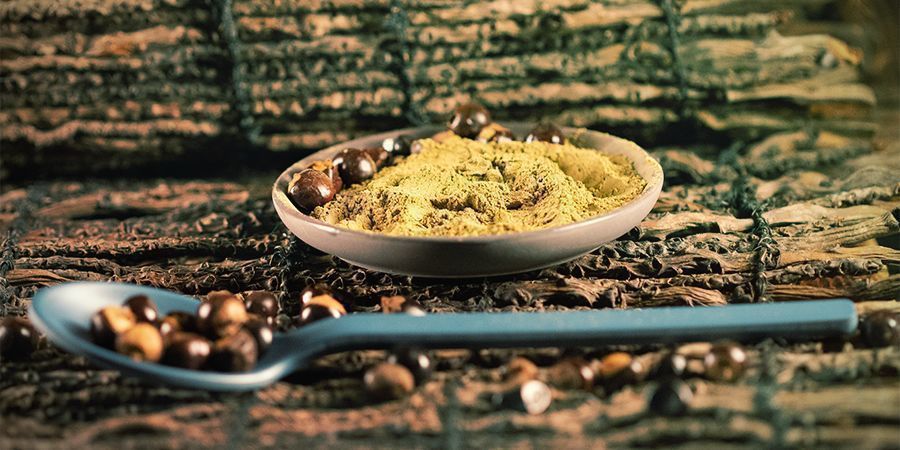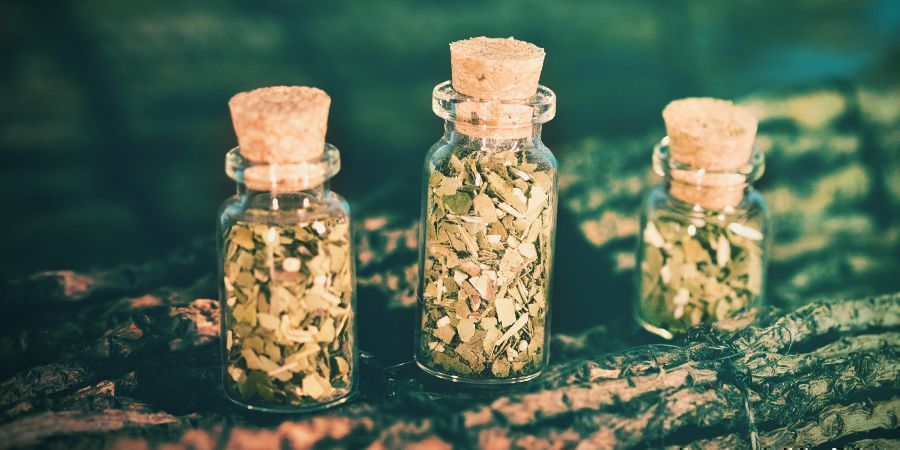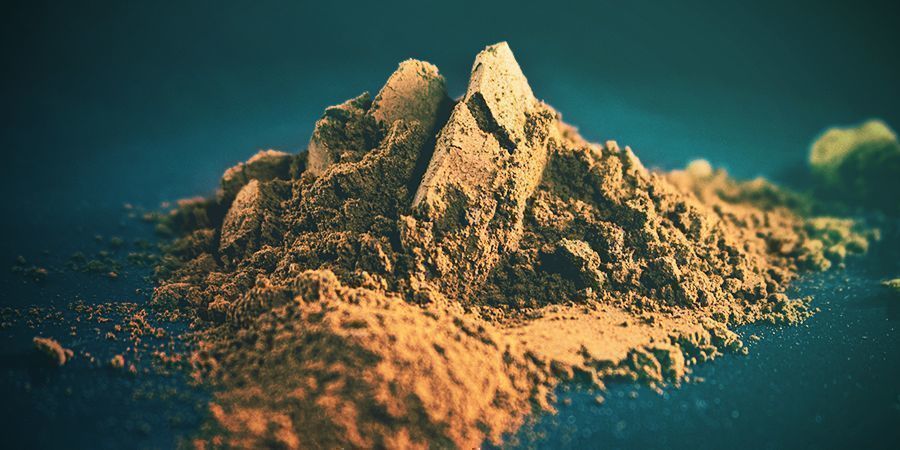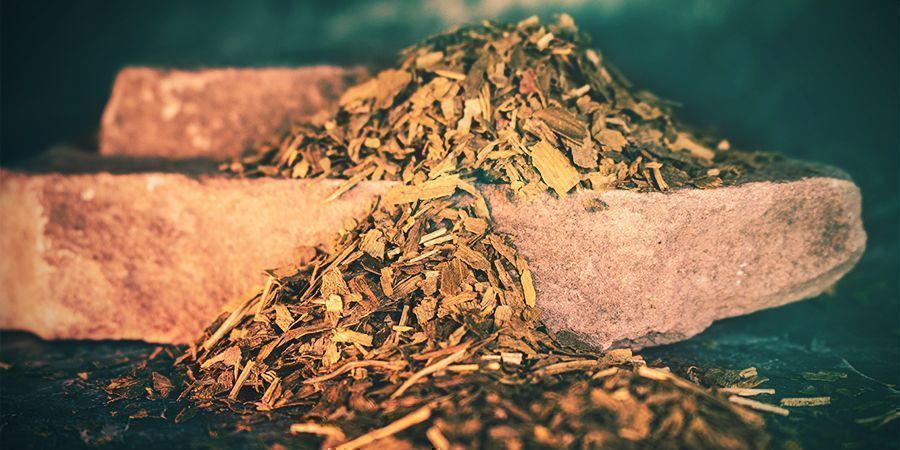Top 5 Natural Stimulants
Looking for something to boost your focus? Is coffee not doing it for you? Don't worry, there's a bunch of other natural stimulants that can help kickstart your brain and boost productivity.
We all need a little cognitive boost sometimes. Many people use coffee to get their day started, topping up throughout the day to maintain focus and motivation. But coffee isn’t the only stimulant nature provides. There’s a host of botanical specimens that produce a stimulating effect or a surge in energy.
WHAT ARE NATURAL STIMULANTS?
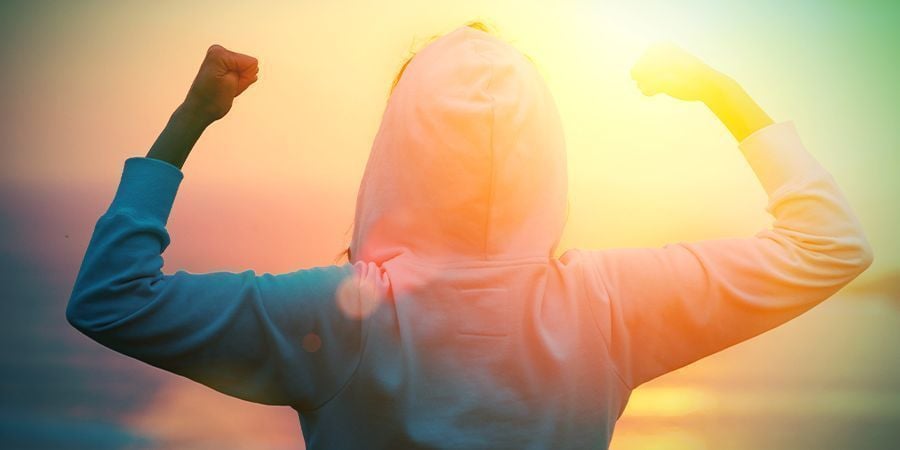
The definition of a stimulant is: “A substance that raises levels of physiological or nervous activity in the body”. There are plenty of synthetic molecules that have been designed to ramp up central nervous system activity, yet nature has synthesised a supply of her own.
Stimulants work by passing through the blood–brain barrier and attaching to specific cellular receptors. In doing so, some of them enhance the release of neurotransmitters like dopamine and norepinephrine.
While most stimulants are effective at increasing alertness and motivation, they can cause side effects such as sleep problems, dizziness, irritability, headaches, and weight loss. Various stimulants also pose a potential for abuse. Do your research before you decide to ingest any stimulant.
Smartshop
Visit the Zamnesia Smartshop for everything from natural psychedelics like salvia, to herbs, energisers, and aphrodisiacs.
THE 5 BEST NATURAL STIMULANTS
Synthetic stimulants consist of isolated molecules. However, natural stimulants can be accessed using whole plants. The dried leaves, roots, and fruits of stimulating plant species are made into teas, powders, and tinctures for ingestion.
Check out the top 5 natural stimulants for the next time you want a buzz!
MACA
Maca is a natural stimulant that stems from the Andes mountains of Peru. Known by the scientific name Lepidium meyenii, maca can be dried and turned into a powder, or cooked and eaten as a root vegetable. The root is a substantial food source and contains good levels of carbohydrates and protein. It’s also high in vitamin C, copper, and iron.
Maca has been praised anecdotally as an energising and libido-boosting plant, and science seems to be on the same page. Research has tested the effects of maca supplementation on physical activity and sexual desire in athletes. The study participants completed a 40km cycling time trial before and after 14 days of maca supplementation. They also completed a sexual desire questionnaire.
Although the study only featured eight participants, maca did provide an increase in physical performance and sexual desire. The plant significantly improved cycling time compared to the baseline. There were also significant improvements in the self-rated sexual desire score compared to placebo.
Maca is simple to take, and people can easily add it into their diet. You can add it to smoothies, cereals, and baked recipes. The optimal dosage isn’t known, but the amount used in studies usually ranges from 1.5–5g per day. The recommended standard dose is 450mg of powder three times a day with food or drink.
GUARANA
Guarana (Paullinia cupana) is a climbing plant native to the Amazon basin. It features large leaves, clustered flowers, and a red-brown fruit that produces a black seed. The seed is an effective stimulant that contains 2–4 times the amount of caffeine found in coffee beans. Guarana seed produces 2–4.5% caffeine as opposed to the 1–2% found in coffee. It’s an excellent option if you’ve become tolerant to coffee, or are looking for something more potent.
However, it’s not just caffeine that gives guarana its stimulating properties. Research has found guarana to provide additional stimulation when compared to caffeine alone. It’s thought that the seed produces another stimulant/stimulants, but further research is required to identify the molecule(s).
Guarana’s stimulating effects are also associated with improved memory and learning. A double-blind, placebo-controlled study observed the acute behavioural effects of guarana in humans. Researchers found guarana to increase mood and enhance cognition and alertness. However, they state that the impact cannot be attributed to caffeine alone—further evidence that the seeds produce other stimulating constituents.
Guarana seeds can be ground up and made into a tea. They have an excellent safety profile, however, high doses can cause side effects such as heart palpitations, nervousness, and shakiness.
YERBA MATE
Yerba mate (Ilex paraguariensis) is an evergreen tree native to South America. The leaves are used to prepare a traditional drink known as mate. It’s typically made using a gourd (known as a calabash) that is filled halfway with dried leaves. Warm water is used to create an infusion and a metal straw (bombilla) is used to drink it.
Yerba mate is a gentle stimulant that contains around 85mg of caffeine per cup—less than a cup of coffee, but more than a cup of tea. Users praise the plant for providing sustained stimulation without the jittery side effects associated with coffee.
The caffeine content in the plant can help to increase energy and cognition. Caffeine is known to antagonise adenosine receptors in the brain, an action that prevents adenosine from slowing down neural activity. This results in enhanced alertness, short-term memory, and reaction time.
The stimulating effects of yerba mate make the plant an excellent pre-workout stimulant to boost physical performance. The caffeine content helps to improve muscle contractions, and a 1g capsule of yerba mate has been shown to increase fat burning when taken before exercise.
You can prepare mate using the traditional method mentioned above, or make it like a standard herbal tea using a coffee press or tea strainer. The tea is traditionally served both hot and cold, so give both a go and see which you prefer.
KRATOM
Kratom (Mitragyna speciosa) is a tropical evergreen tree belonging to the coffee family. It’s native to parts of Southeast Asia such as Thailand, Indonesia, Malaysia, and Myanmar. The leaves of the plant are dried and used to make teas, extracts, and powders. These preparations are used both medicinally and recreationally to achieve various effects.
Kratom contains the active constituent mitragynine, which produces dose-dependent effects. Low doses (1–5g) provide a stimulating effect, whereas high doses (5–15g) produce an opioid-like effect. Mitragynine achieves these effects by acting on opioid receptors in the brain—the same sites that opioids like morphine bind to.
For stimulating effects, use 1–5g of kratom leaves to make a hot water infusion. Alternatively, mitragynine can be absorbed by chewing the leaves.
Kratom is also available in capsules, powders, and liquid extracts. Follow the dose guidelines provided on the packaging. To achieve a stimulating effect, consume the lower end of the recommended dose.
GINKGO BILOBA
Ginkgo biloba isn’t strictly a stimulant, but it does work to boost mental performance and cognitive function. Ginkgo biloba is the last surviving species in the ancient division Ginkgophyta, with all other species now extinct. The tree is native to China and—although cultivated on a large scale—is classed as an endangered species.
Ginkgo biloba is an important plant ally when seeking a mental boost. Whether you’re studying for an exam or want to absorb information when reading a book, ginkgo will boost your brain power.
Ginkgo extract has been shown to improve mental functioning and perceived well-being. Additionally, a double-blind, placebo-controlled study tested Ginkgo biloba on cognitively intact older adults. Researchers found the plant to enhance specific neuropsychological and memory processes.
- Ahmad Alkhatib. (2014). Yerba Maté (Illex Paraguariensis) ingestion augments fat oxidation and energy expenditure during exercise at various submaximal intensities - https://www.ncbi.nlm.nih.gov
- Cieza A, Maier P, & Pöppel E. (2003 Sep-Oct). Effects of Ginkgo biloba on mental functioning in healthy volunteers. - PubMed - NCBI - https://www.ncbi.nlm.nih.gov
- Dimitrios Moustakas, Michael Mezzio, Branden R. Rodriguez, Mic Andre Constable, Margaret E. Mulligan, & Evelyn B. Voura. (2015). Guarana Provides Additional Stimulation over Caffeine Alone in the Planarian Model - https://www.ncbi.nlm.nih.gov
- Haskell CF, Kennedy DO, Wesnes KA, Milne AL, & Scholey AB. (2007 Jan). A double-blind, placebo-controlled, multi-dose evaluation of the acute behavioural effects of guaraná in humans. - PubMed - NCBI - https://www.ncbi.nlm.nih.gov
- Stone M, Ibarra A, Roller M, Zangara A, & Stevenson E. (12/10/2009). A pilot investigation into the effect of maca supplementation on physical activity and sexual desire in sportsmen. - PubMed - NCBI - https://www.ncbi.nlm.nih.gov













 United States
United States



